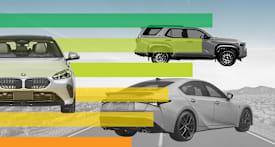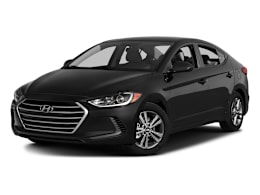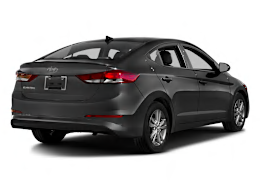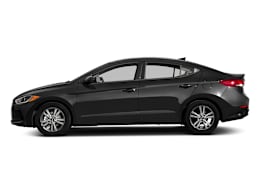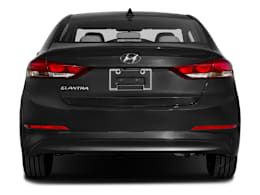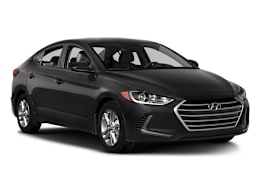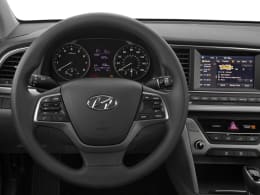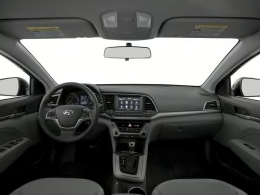Contemporary compact sedans have grown roomier, more substantial, and more fuel efficient. These aren't the tiny, "first new cars" the segment used to be. Case in point, the Hyundai Elantra. The Elantra delivers the roominess and fuel economy to compete in this crowded segment, but it falls short in refinement and performance.
User-friendliness is an Elantra strong point, aided by a relatively spacious interior. Open and airy feeling inside, the cabin features a broad cockpit and one of the most spacious rear seats in the class. Controls are super simple, combining familiar buttons and knobs with a touch screen for the infotainment system. Apple CarPlay and Android Auto are available.
Fuel economy impresses at 33 mpg overall, putting the Elantra on par with the class's most frugal entries, the Mazda3 i and Toyota Corolla. That's a significant improvement over the 29 mpg of the old car, despite employing conventional powertrain technologies. Unlike some peers, Hyundai refrained from using small-displacement turbocharged engines or whiz-bang transmissions. Most Elantras have a mundane 2.0-liter, 147-hp four-cylinder and a conventional six-speed automatic that gets the job done.
But driving the Elantra is an ordinary affair rather than an enjoyable experience. Handling remains sound and secure, but this Hyundai won't challenge the sportiest among the compact car bunch, such as the Ford Focus, Mazda3, and Volkswagen Jetta. An Elantra Sport version adds more power and has a different, upgraded rear suspension.
At first blush, the ride is agreeable but when challenged on sharp bumps, it loses some of its resilience and composure. The Elantra's refinement takes a further hit from the boisterous engine and noticeable road noise.
The standard cloth seats are only so-so, but the top Limited trim provides leather and power seats that improve support.
The Elantra is available with a host of advanced safety equipment, such as blind-spot detection with rear cross-traffic alert, forward-collision warning with automatic braking and pedestrian detection, lane-departure warning with lane assist, and adaptive cruise control. However, some of this equipment is only available only on top-level models like the Limited. These important safety features should be available at lower price points, if not standard.
Overall, the Elantra is a modest step ahead. In terms of room, user-friendliness, frugal fuel consumption, and value the Elantra is a resounding success. But we wish it was quieter and more comfortable riding.

